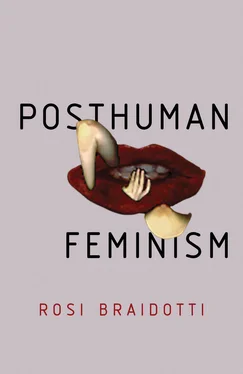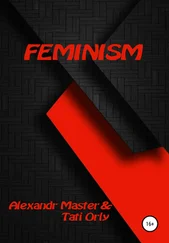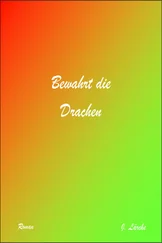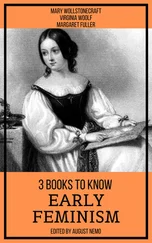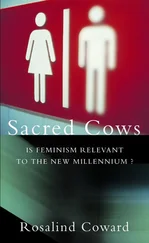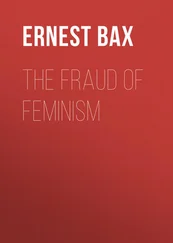In chapter 7, ‘Wanting Out!’, I address the creative, imaginative and speculative strands of posthuman feminism. Arguing for the importance of the radical imagination to the feminist posthuman project, I look at different examples of this specific style, ranging from figurative thinking in academic feminist scholarship, to science fiction, fantasy novels, utopian texts of a political or fantastic nature, through Afrofuturism and black space-travel narratives. The speculative genre voices the transversal alliance of sexualized, racialized, naturalized others against the dominion of Man/Anthropos. It combines dystopian and utopian elements in envisaging alternative feminist futures. The chapter ends with a feminist assessment of the economics and politics of the contemporary race for new materials in far-away regions and in outer space.
Finally, in the short Epilogue, ‘Get a Life’, I concentrate on the ethical implications of the feminist posthuman agenda in a world damaged by the tensions and contradictions of the posthuman convergence. I argue that the radical feminist imagination can be a source of inspiration for new scenarios of endurance and reconstruction. This is all the more relevant for a world haunted by a lethal pandemic and the need to reconstruct communities in highly divisive and painful times. An affirmative posthuman ethics entails the composition of communities sharing the same imaginings and values. It involves imagining a collective subject as the ‘we’ who are not one and the same, though we are in this posthuman predicament together.
Posthuman Feminism aims to be a navigational tool as well as a conceptual toolbox: it offers a series of roadmaps into and out of the posthuman convergence. This is a book that longs to be active outside the written page. It wishes to be out there with the other entities that are trying to negotiate an affirmative path amidst the speed and the paralysis, the boom and bust, of the posthuman convergence.
The book connects to and works across different temporalities. Crucial to feminist politics is the memory of oppression – of the injury and pain of exclusion and injustice. That kind of memory is made of repetitions of often traumatic events and ideas that we do not so much remember but rather refuse to forget. Activist time is made of zigzagging detours that bring productive repetitions to bear on the ethical orientations and the political praxis of the present. Feminists today are struggling through the contemporary posthuman turn with concern, but also with curiosity, wondering what’s in it for them. What is the posthuman future of those who were never fully human? And what is the time measure of the posthuman feminist cause? Now, forever, and all at once is the time of feminism.
For feminist activists it is always the year zero, even after thousands of years of oppression and struggle for liberation across many feminist plateaus of movements and counter-movements. What is at stake in feminism is human freedom. This is the process of liberation as the ongoing eventualization of many virtual pasts, of many radical ideas that never quite made it, but never quite died either. Feminism is an affirmative gesture, a leap of faith in what humans may still be capable of. The positive becoming of posthuman feminism expresses a trust in the future, which allows not so much a flash-back nor a flash-forward, but a ‘back-cast’; casting paths of becoming from the future back to the now. The agenda of feminism is truly present, but still unfulfilled, and truly past, though highly relevant to a present that is trying to become an actual, sustainable future. Inexhaustible and always about to self-combust back into life, feminism, by any other name, endures.
1 1 This is a legendary quote that has become part of popular culture. The source is attributed to: Steinem, Gloria. 1973. The verbal karate of Florynce R. Kennedy, Esq. Ms. Magazine, March.
Part I Posthuman Feminism as Critique
Chapter 1 Feminism Is Not (Only) a Humanism
He he he he and he and he and and he and he and he and and as
and as he and as he and he.
He is and as he is, and as he is and he is,
he is and as he
Gertrude Stein, If I told him , 1923
The main tenet of posthuman feminism is that the notion of humanism needs to be reviewed and assessed critically but not thrown away entirely. The posthuman predicament assumes the relative success of equality-minded feminism. This chapter lays the groundwork by first briefly explaining the masculinist roots of Eurocentric humanism as well as its philosophical critiques. It will then proceed by giving a genealogy of the historical ties that bind Western feminism to humanism. Humanism is the backbone of the women’s emancipation project carried out in three major bodies of thought proclaiming universal human rights: classical liberalism; socialist humanism; and Black, anti-colonialist, anti-racist and Indigenous voices. The chapter ends with an evaluation of how LGBTQ+ theories and practices are positioned in the aftermath of humanism. They pursue a similar project of emancipation with claims to equality and struggles for recognition and justice, but they radically move away from the normative idea of the human built into humanism, ‘queering’ it into in humanism.
The Man of Reason as the Image of Humanism
Humanism has helped construct liberal democracies by upholding the separation of Church from State and instigating fundamental freedom under the rule of law. From the Enlightenment, humanism took its emancipatory belief in the universal powers of scientific reason and faith in technological progress, as well as adjacent values such as secular tolerance and equality for all. As such, humanism supports the Western project of modernity, including its industrial, imperialist and bellicose inclinations (Davies, 1997).
The main version of humanism that plays out in the posthuman convergence is a retake on the European renaissance ideal of the human as ‘the measure of all things’ or the ‘Man of Reason’ (Lloyd, 1984). This European humanist ideal positions the universalizing powers of a sovereign notion of reason as the basic unit of reference to define what counts as human. This hegemonic idea of ‘Man’ as coinciding with universal reason also claims exclusive rights to self-regulating rational judgement, moral self-improvement and enlightened governance for European subjects. That image was represented visually by Leonardo in the famous sketch of the Vetruvian body as the perfectly proportioned, healthy, male and white model, which became the golden mean for classical aesthetics and architecture (Braidotti, 2013). The human thus defined is not so much a species as a marker of European culture and society and for the scientific and technological activities it privileges.
The humanist values and their rationalist underpinnings apply both to individuals and to groups operating within scientific and moral criteria of human perfectibility. They thus act as the motor of human evolution coinciding with the teleological progress of human civilization (intrinsically assumed to be European) through science and technology. The ‘Man’ of classical humanism was positioned at the pinnacle of an evolutionary scale, which classified different classes of beings lower down the hierarchical ranks and files. They are the ‘others’ defined as the negative opposites of the dominant human norm. 1The point here is that difference, being ‘other than’ or ‘different from’ ‘Man’, is actually negatively perceived as ‘worth less than’ ‘Man’. This epistemic and symbolic exclusion is no abstraction: it translates into ruthless violence for the real-life people who happen to coincide with categories of negative difference. They are the women and LGBTQ+ people (sexualized others), Black and Indigenous people (racialized others) and the animals, plants and earth entities (naturalized others). Their social and symbolic existence was denied, leaving them disposable and unprotected. They are multiple and disqualified, whereas ‘Man’ is One and fully entitled.
Читать дальше
